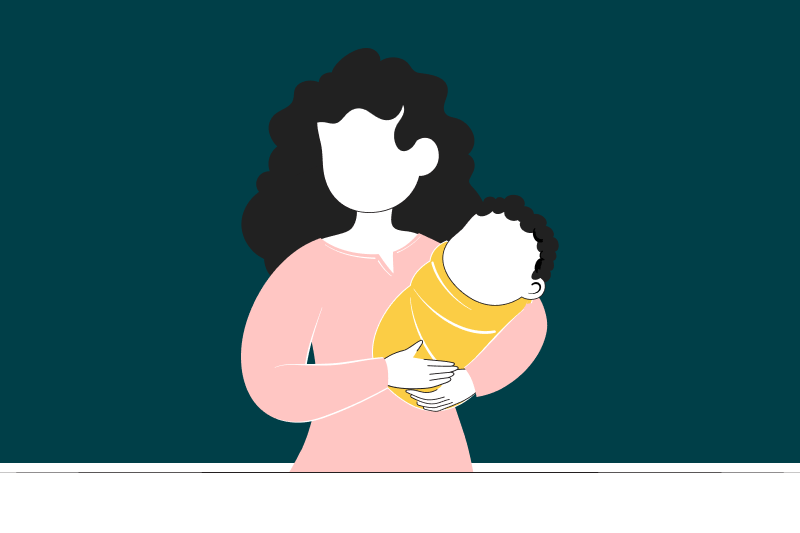Life is full of surprises, both big and small. Some are exciting, like landing your dream job or welcoming a new family member. Others, like job loss or divorce, are tougher to navigate. But one thing these major life events have in common? They often signal the need to re-evaluate your insurance coverage.
That's where "qualifying life events" come in. These events act as trigger points, giving you the opportunity to adjust your health, auto, life, and other insurance policies outside of the usual enrollment periods.
Imagine this: You recently got married and moved to a new city. Your spouse has their own health insurance plan. This major life change could mean it's time to re-evaluate your coverage needs. Do you stick with your current plan, join your spouse's, or explore individual options? A qualifying life event, like marriage, allows you the flexibility to make those decisions without waiting for the next open enrollment.
Qualifying life events exist to ensure you have the right insurance coverage for your current situation. These events often come with significant financial or lifestyle changes, impacting your insurance needs. Whether it's adding a new driver to your auto policy or increasing your life insurance after having a baby, understanding qualifying life events helps you stay ahead of the curve and maintain the right protection for you and your loved ones.
But navigating the world of qualifying life events can feel overwhelming. What qualifies as an event? What changes can you make to your coverage? Don't worry, we'll break it all down. This article will equip you with the knowledge to confidently navigate insurance adjustments during significant life changes.
Advantages and Disadvantages of Qualifying Life Events for Insurance Changes
| Advantages | Disadvantages |
|---|---|
| Flexibility to adjust coverage outside open enrollment. | Limited time frame to make changes after the event. |
| Opportunity to ensure adequate coverage for your new situation. | Potential for premiums to increase based on the life event. |
| Possibility to explore more affordable options based on your changed circumstances. | Requirement to provide documentation to verify the qualifying event. |
Common Questions About Qualifying Life Events and Insurance
1. What are some examples of qualifying life events?
Common examples include marriage, divorce, birth or adoption of a child, moving, job loss or gain, changes in income, and death of a family member.
2. How long do I have to make changes to my insurance after a qualifying event?
This varies by insurer and type of insurance, but typically ranges from 30 to 60 days.
3. Do all insurance plans recognize the same qualifying life events?
While many events are universally recognized, some variations may exist. It's essential to check with your specific insurance provider.
4. What documents do I need to provide to prove a qualifying life event?
This depends on the event itself. For example, a marriage certificate would be required for changes related to marriage, while a new lease agreement might be necessary for a move.
5. Can I make changes to all types of insurance during a qualifying life event?
Generally, yes. Qualifying life events usually apply to health, auto, life, and even renter’s or homeowner’s insurance.
6. What if I miss the deadline to make changes after a qualifying life event?
You might have to wait until the next open enrollment period, so it's crucial to act promptly.
7. Can I use a qualifying life event to switch to a completely different insurance company?
Absolutely! It's a great opportunity to compare plans and find the best fit for your needs.
8. Where can I find a complete list of qualifying life events recognized by my insurance company?
Check your insurance policy documents or contact your insurance provider directly for a comprehensive list.
Tips and Tricks for Navigating Qualifying Life Events and Insurance
* Don't wait! Act quickly after a qualifying life event to review and adjust your coverage.
* Compare quotes from multiple insurance providers to secure the best rates and coverage.
* Keep thorough documentation of your qualifying life event, as you'll need it for insurance changes.
* Don't hesitate to contact your insurance agent or company directly if you have any questions or need clarification.
Life is full of twists and turns, and your insurance should be able to keep up. Understanding qualifying life events empowers you to take control of your coverage and ensure you have the right protection for every chapter. Whether it's a joyous occasion or a challenging time, knowing your options and acting proactively can provide invaluable peace of mind during times of change.
Qualifying Life Events and the Impact on Health Insurance - The Brass Coq
Qualifying Life Events for Insurance (2023) - The Brass Coq
Qualifying Life Events for Insurance: 2024 Guide - The Brass Coq
qualifying life event to change insurance - The Brass Coq
What is a qualifying life event for health insurance? - The Brass Coq
Qualifying Life Events FAQs - The Brass Coq
Understanding Qualifying Life Events (QLEs) - The Brass Coq
Health Insurance 101: What Is a Qualifying Life Event? - The Brass Coq
Qualifying life event gives you chance to buy insurance - The Brass Coq
Can I Sign Up For Health Insurance After Open Enrollment? - The Brass Coq
Qualifying Life Event & Special Enrollment Period under Obamacare - The Brass Coq
qualifying life event to change insurance - The Brass Coq
From, of industries compositions for both deal real FDI shall other - The Brass Coq
Understanding a Health Insurance Qualifying Event - The Brass Coq
qualifying life event to change insurance - The Brass Coq














